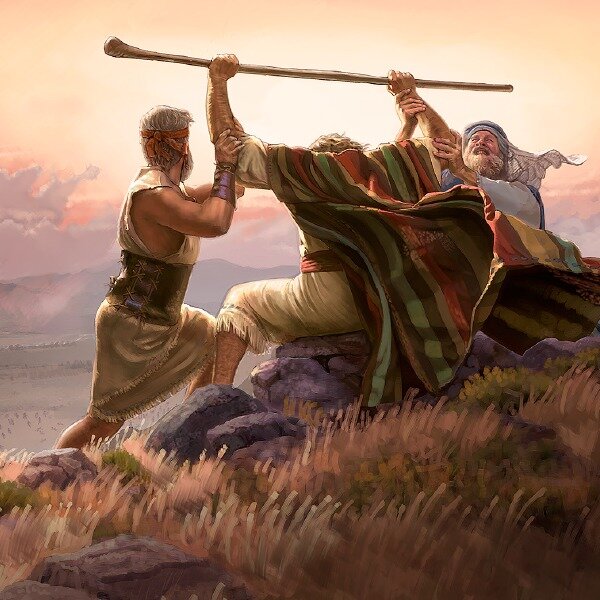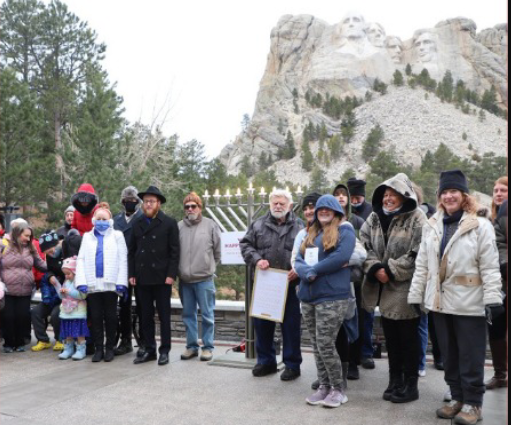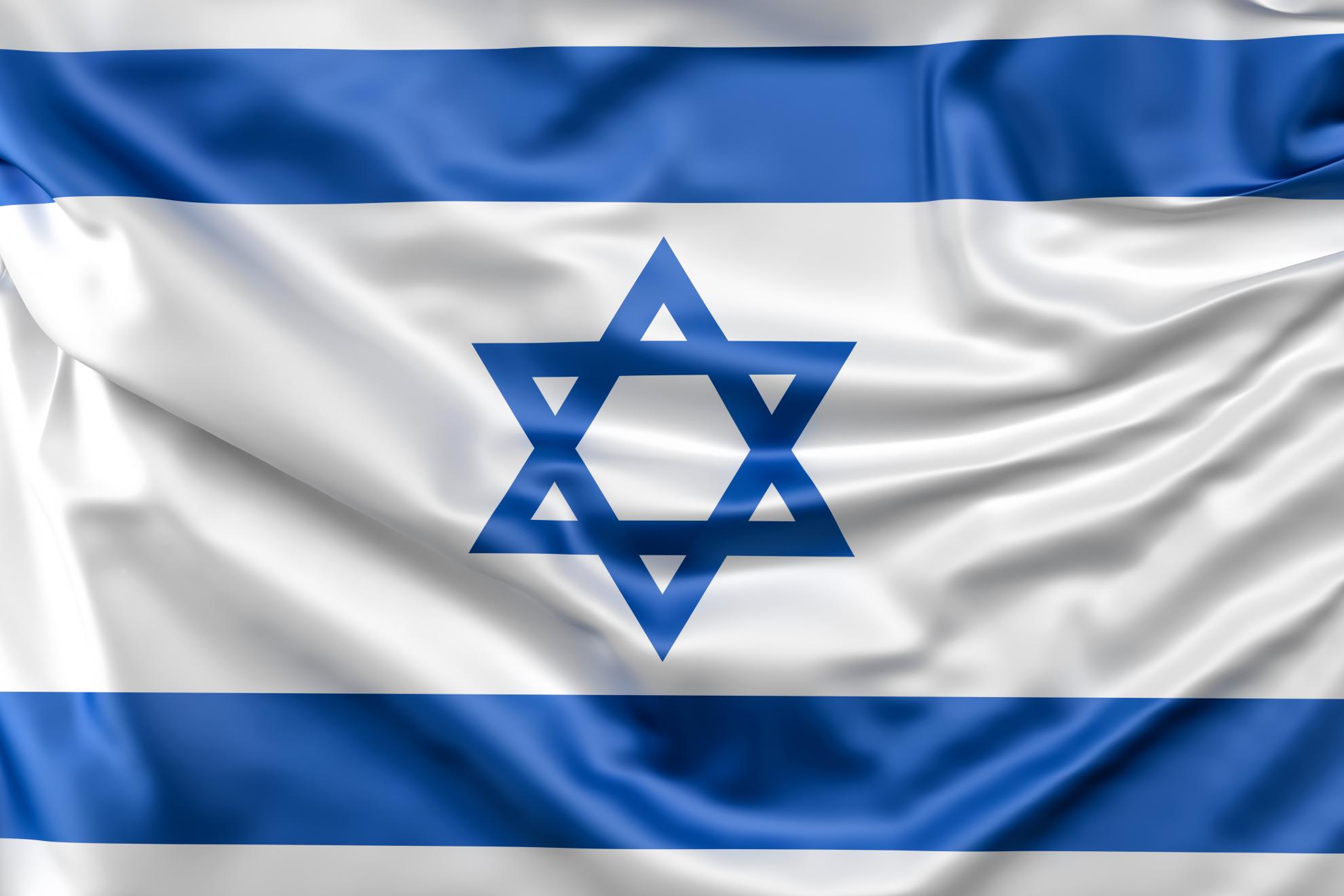October 17, 2025|כ"ה תשרי ה' אלפים תשפ"ו Shemini Atzeres 5786 - A War That Changed Us Forever
Print ArticleI know we are all feeling so many mixed emotions right now. Yesterday, we watched videos of families reuniting with their loved ones. The screams of joy, of Shema Yisrael. We have met some of these families, we have davened for them for years, and then to see them hugging each other, brought us tears of joy. A real experience of Yeshuas HaShem K'Heref Ayin — that the salvation of Hashem can come in an instant!
And, at the same time, there is so much pain out there today. The families whose children came home and will continue to come home in coffins. Those for whom today is a yahrtzeit for their loved ones who were murdered in their homes, at Nova, or fighting terrorists on that day, as well as the pain of those who watched the murderers of their family members go free in this deal.
It is also a day of tremendous Hakaras HaTov to the over 1,154 extraordinarily brave chayalim who gave their lives and whose families have been broken, so that Hamas could be defeated, and so the hostages could come home.
And it is a day of relief for the hundreds of thousands of soldiers and reservists and their wives and children who can now spend full weeks at home together as a family.
And yet, with all our mixed-up feelings, I believe there is also an important message for us to begin talking about today.
I want to take you back to a moment in Jewish History that we know very well. And that is the moment of Yetzias Mitzrayim.
In Parshas BeShalach, the Torah tells us how Am Yisrael, after 210 years as slaves in Egypt, only a few miles from where their family had begun in Eretz Yisrael, finally leave the horrors of servitude. They had experienced a terrifying ordeal as a People: men, women, and children murdered by Egyptian taskmasters; entire generations of Jews living subject to the constant, daily abuse of the sinister Egyptian leadership and its henchman; entire generations who had been slaves for so long that they didn't even know what a life of freedom could look like.
And as they are finally heading out, free of the place that represented 210 years of trauma, they are commanded to do something unimaginable:
דַּבֵּר אֶל בְּנֵי יִשְׂרָאֵל וְיָשֻׁבוּ וְיַחֲנוּ לִפְנֵי פִּי הַחִירֹת בֵּין מִגְדֹּל וּבֵין הַיָּם לִפְנֵי בַּעַל צְפֹן נִכְחוֹ תַחֲנוּ עַל הַיָּם:
Hashem tells Moshe to tell the people to turn around and head back towards the entrance of Egypt, Pi HaChirot. And, of course, we can imagine this was excruciating and totally confusing for the people. Hashem had just hurried Am Yisrael out of Egypt and into the desert, and now He's bringing us back!?
Rashi explains that this was Hashem's way of baiting Pharaoh and the Egyptian Army to chase after Am Yisrael, so that eventually they would be drowned in the dramatic scene at the Yam Suf.
However, the Sfas Emes offers a different explanation: The miracle of Yetzias Mitzrayim, as we know, happened "B'Chipazon" very quickly. However, says the Sfas Emes, when we experience moments quickly, when they happen so fast, sometimes we don't have the opportunity to allow their impact to last. Therefore, after removing us from Egypt quickly, Hakadosh Baruch Hu then takes us back, not all the way in, but back to those first steps out, so we can leave more slowly and gradually.
All of this would have the impact, in the words of the Sfas Emes:
שישאר גאולה זו בעצמות ישראל
So that the experience of geula would remain in the bones of Am Yisrael. In other words, so that Yetzias Mitzrayim wouldn't be an event that happened to us, but rather an experience that would change us forever.
And, in fact, this is what the Yom Tov of Shemini Atzeres is all about: After 30 days of Elul, the Teshuva process of Rosh Hashana, the Aseres Yimei Teshuva, and Yom Kippur, we are ready to dedicate ourselves to Hakadosh Baruch Hu. And so, what does He do? He gives us a Yom Tov of Sukkos with so many mitzvos: Daled Minim, Sukkah, V'Samachta B'Chagecha, so much to do. And then, says the Torah:
בַּיּוֹם הַשְּׁמִינִי עֲצֶרֶת תִּהְיֶה לָכֶם כָּל־מְלֶאכֶת עֲבֹדָה לֹא תַעֲשׂוּ:
On the 8th day, stop. There is no mitzvah of the day. It is a day to contemplate our next step, a day to take stock of all we have accomplished, so that the Yamim Noraim don't just happen to us. Rather, they become an experience that will change us, as we move forward.
When this began, we would never have believed this war would last two years. For many of us, we can't even remember what life looked like without Am Yisrael at war, without hostages, without that terrible stinging reality hanging over us every day as we wake up. In a certain sense, the length of this war, which I don't pretend to explain in any way, but simply the reality of its length, has allowed this experience to change our people.
It has brought out extraordinary character from all segments of Klal Yisrael. The bravery, the resilience, the sacrifice for others have been extraordinary. But that change did not only happen in Israel. It happened in Jewish communities throughout the world, throughout the United States, and in our shul community. We are all different than we were two years ago. And we have all seen in ourselves a potential that we didn't know was there before all of this.
And it brought out something else from us as well: At the conclusion of every tefillah of Yom Kippur we recite a short paragraph which begins as follows:
אלוקי, עד שלא נוצרתי איני כדאי, ועכשיו שנוצרתי כאילו לא נוצרתי
God, until I was created I was unworthy, and now that I have been created it's as if I was never created. It's a strange formulation: Of course I wasn't worthy before I was created! What is this supposed to mean?
Rav Avraham Yitzchak HaKohein Kook explains — Hashem, before you created me — Eini K'Dai - I had no purpose in this world. Because You waited for a time when the world needed my contribution, and only then did You place me here b/c there is a purpose, a mission that You need me to accomplish.
My friends, what has become crystal clear to me over these past two years is that our generation has been chosen by Hashem for this task! I don't know why, but He believes that we have the potential, the resilience, the strength to bring Am Yisrael to this next stage of history. And that is not only true in Eretz Yisrael. It is true for every single one of us! What we have done as a People during this time has been extraordinary, and now it is time for us to move to the next stage.
Because now there won't be an external reality there to grab our attention each day. There won't be Tehillim after davening, b'ezrat Hashem soon there won't be another hostage update to galvanize us to daven, and there won't be more bags to pack for chayalim. And that connection to this stronger, more focused version of ourselves may become harder to find.
And so, as this war comes to its conclusion, we are faced with a question: How will we make sure:
שישאר גאולה זו בעצמות ישראל
That this next step in the process of our geula, this complicated mix of salvation together with more challenge, remain a part of us forever. That it stays in our bones. That we continue to actualize our potential as a generation chosen by Hakadosh Baruch Hu for greatness!
For every person the decision about how to do this will be personal, but I will share two thoughts about areas to consider:
In November of 2023 I went on an RCA mission to Israel with a group of rabbis. On Wednesday, November 29th, we went to the Bring Them Home Now headquarters in Tel Aviv, where we met Ruchama. Ruchama is the mother of Elkana Bohbot, who was assisting the DJ at Nova when he was kidnapped and taken hostage. When we saw her, it was the first day she had left her home in 50 days. She said "my son was in shevi (captivity), so I had to be in shevi". We asked what made her decide to leave today? She said that because some hostages were being released it gave her a sliver of hope. One of the rabbis asked if she would like us to daven for her son right there with her and she said "yes please!" So, he recited the mishebeirach for the shvuyim and she was so grateful.
I will be honest, when I met this woman, she had just begun to try to find hope, but I couldn't imagine she would ever see her son again.
The next thing we did was go to hostage square, and in a tent towards the back, we met Zvika Mor, the father of Eitan, 21, who was also at Nova working as a security guard. Eitan is the oldest of 8 children, in a family that lives in Kiryat Arba. We davened with Zvika for his son's safe return and then we all davened mincha together. He said "I'm not patur (exempt) from mincha". I wrote then in a whatsapp update, "As I davened shmonei esrei just a few feet from this man I couldn't imagine what his tefillos are like and how Hashem "experiences" them. I can only imagine."
Yesterday, Elkana Bohbot and Eitan Mor came home to their families. And to watch these parents who have held out hope, and fought and fought like lions for their children, have the ability to embrace their sons was overwhelming. And it made me think of four things that we should be taking with us:
1) We must learn from this experience that a Jew never loses hope. That doesn't mean things will always go how we would like, but it means that no matter our situation in life, we must always remember that Hashem can do anything. Over the past two years, how many events have we experienced that were so obviously the Yad Hashem! Not one event that 50 years later we realized how it helped shape another event — a few weeks, a days later! It's as if we experienced 5 Purims over the past 2 years! Someone once said to me, "I wish Hashem would just give me a little wink in the morning, to let me know He's here." This experience has felt like Hashem waving His hands to get our attention. Before October 7th, when I would consider topics to discuss in shul, I stayed away from Emunah. Sometimes I feel that we think it's not sophisticated, it's not intellectual. That was a mistake. As this war has gone on, we have needed our Emunah more than ever, and we have become more connected to that belief in Hashem and that He controls the world. We must continue to strengthen our Emunah going forward.
2) We have learned the power of Tefillah. For how many months did we daven for the hostages to come home? On October 8th, the IDF and Intelligence community told the Prime Minister that it was likely that none of the hostages would come back. In the end, 168 came back alive! That's not enough, but it's an incredible number. Of course, not every tefillah was answered with a yes, but a lot of them were! The estimates were that anywhere from 3,000-4,000 civilians would be killed in a conflict with Iran. It is terrible that 28 civilians lost their lives, but it is miraculous that it wasn't worse. And we davened for that success and it happened! And as this war ends, we need to continue to lean on the power of tefillah and commit ourselves to more tefillah, more consistent tefillah, and a stronger connection to our tefillah.
3) I couldn't help but feel such love and simcha for those two families I barely knew and met only once. And so many of us have felt that feeling — simcha for their simcha and such searing pain for their pain - for so many Jews we don't know. How many of us cried tears of joy as we watched those amazing hugs, and how many of us cried tears of pain watching Rachel Goldberg talk about the hug she is never going to receive. We learned to really feel for Jews who are otherwise strangers to us. Yes, it's sometimes easier to love the Jew who is 6,000 miles away than the Jew who sits 6 feet from me, but we cannot lose that sensitivity and care for every Jew.
4) During this war we have all felt a much closer connection to the Land of Israel and the State of Israel. We woke up every morning and checked the news, checked updates from friends and family, and really spent so much of our days thinking and wondering about what's happening in Israel. Many of us feel more connected to Israel than we ever have in our lives, and we must find ways to continue to cultivate that connection.
We must commit ourselves with practical steps:
שישאר גאולה זו בעצמות ישראל
So now, as we shift into a new reality, there is a new question being asked of each of us: How will we strengthen our Emunah and ability to find hope? How will we continue to strengthen our connection to Tefillah? How will we continue to strengthen our love and care and concern for every member of Am Yisrael? And how will we continue to cultivate our connection to Medinat Yisrael? And as we answer those questions, each of us continues to ensure that this end is actually the start of a beautiful new beginning.




